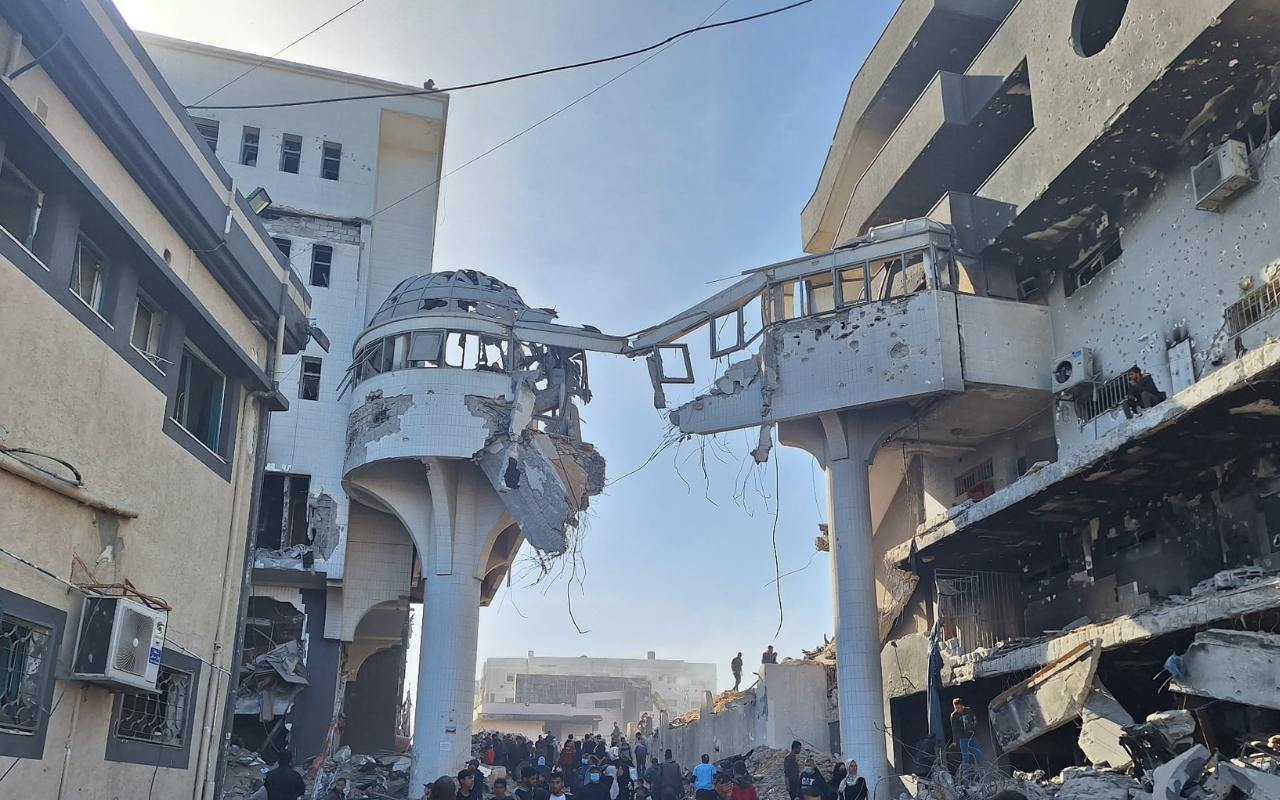With Gaza’s largest hospital in ruins, thousands of people killed, and millions displaced, health care workers yet again urge for an immediate and sustained ceasefire.
The Al-Shifa hospital in northern Gaza was destroyed in late March after a 14-day long operation by Israeli forces.
Established in 1946, Al-Shifa was once the largest and most important referral hospital in Gaza. According to a statement from the World Health Organization, the hospital is now an empty shell.
“Most of the buildings are extensively damaged or destroyed and the majority of equipment is unusable or reduced to ashes. The WHO team said that the scale of devastation has left the facility completely non-functional, further reducing access to life-saving health care in Gaza,” the statement said.
It’s been reported that hundreds of shallow graves and decomposed remains were discovered since Israeli forces withdrew on1 April.
“Shifa has literally become a graveyard … There are bodies still in this courtyard,” Jonathan Whittall from the United Nations Office for the Coordination of Humanitarian Affairs said in a video posted on X [restricted to adults only].
The destruction of Al-Shifa leaves even fewer health care options for the people of Gaza.
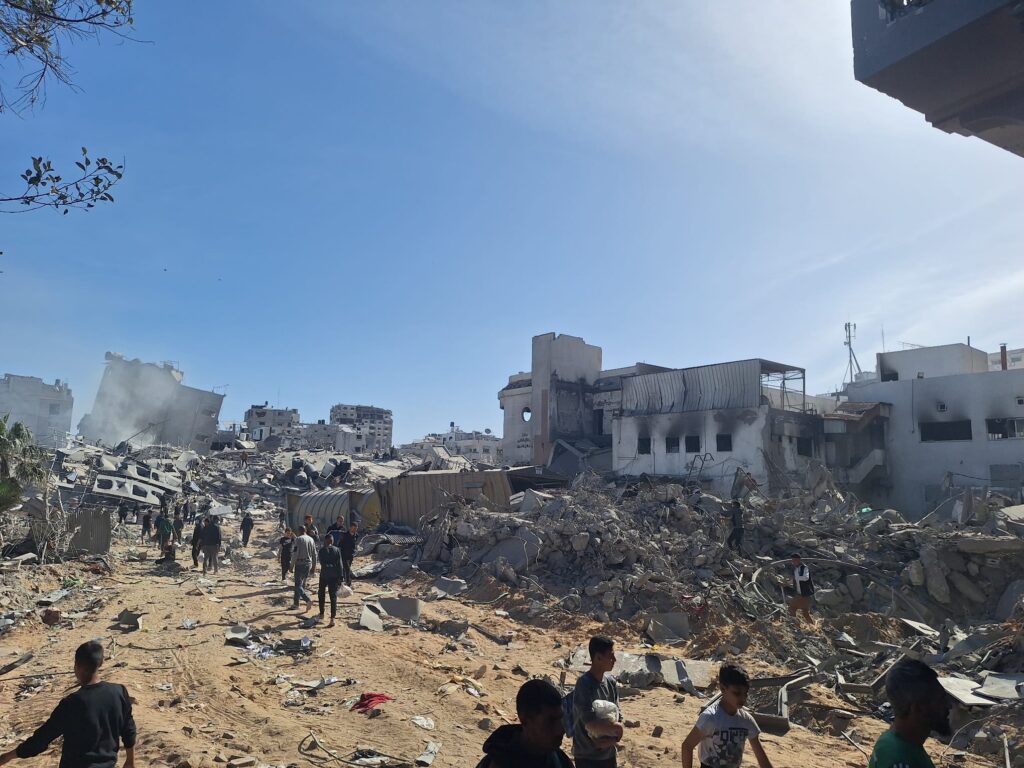
The health care crisis
As reported in February, medical services at one of the largest functioning health facilities in southern Gaza, Nasser Hospital, have already collapsed.
Of the 36 main hospitals in Gaza, there are now only ten that are somewhat functional. A Médecins sans Frontières (MSF) spokesperson told InSight+ in a statement:
“Providing health care is becoming virtually impossible in Gaza, as no place, not even places of health care, are respected and safe from the bombs. Since October 2023, 406 attacks against health facilities and medical personnel have been documented.
“Health care facilities have been subjected to evacuation orders and been repeatedly attacked, besieged and raided. Medical staff and patients have been arrested, abused and killed while caring for patients,” they said.
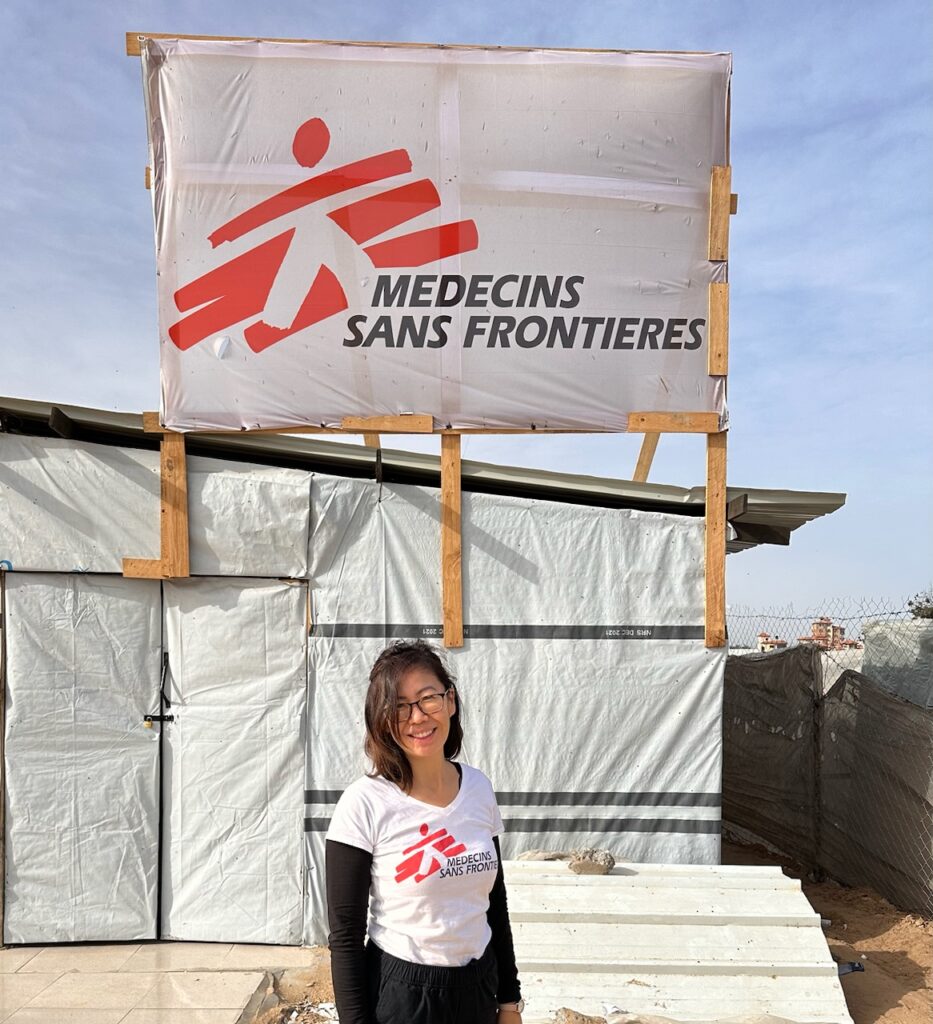
Clinical Psychologist Scarlett Wong, an MSF Mental Health Activity Manager, has recently returned from Gaza. She has previously completed several humanitarian missions with MSF but told InSight+ that this crisis is nothing like she has ever seen before.
“Suffering is not usually so intentionally man-made. I have never seen so many innocent civilians be killed and prevented from escape. Where hospitals are targeted, where doctors, nurses, psychologists, ambulance drivers, humanitarian and patients are killed. This is the only place I’ve been where help and lifesaving aid is minutes away, but denied,” she said.
The human toll
It’s been six months since 7 October 2023 when Hamas militants attacked southern Israel, killed 1,139 people and captured about 250 people. According to reports, there are still 130 hostages unaccounted for in Gaza. There are reports the hostages had undergone significant trauma, with the head of psychiatry at the Ichilov Tel Aviv medical centre in Israel saying the hostages had undergone the worst abuse she had witnessed in her career (here).
In response to the attacks on 7 October 2023, the Israeli military began a sustained attack of Gaza with the aim of targeting Hamas fighters. However it’s been reported that over 33 000 Palestinians have been killed in the sustained attacks, including more than 13,800 children.
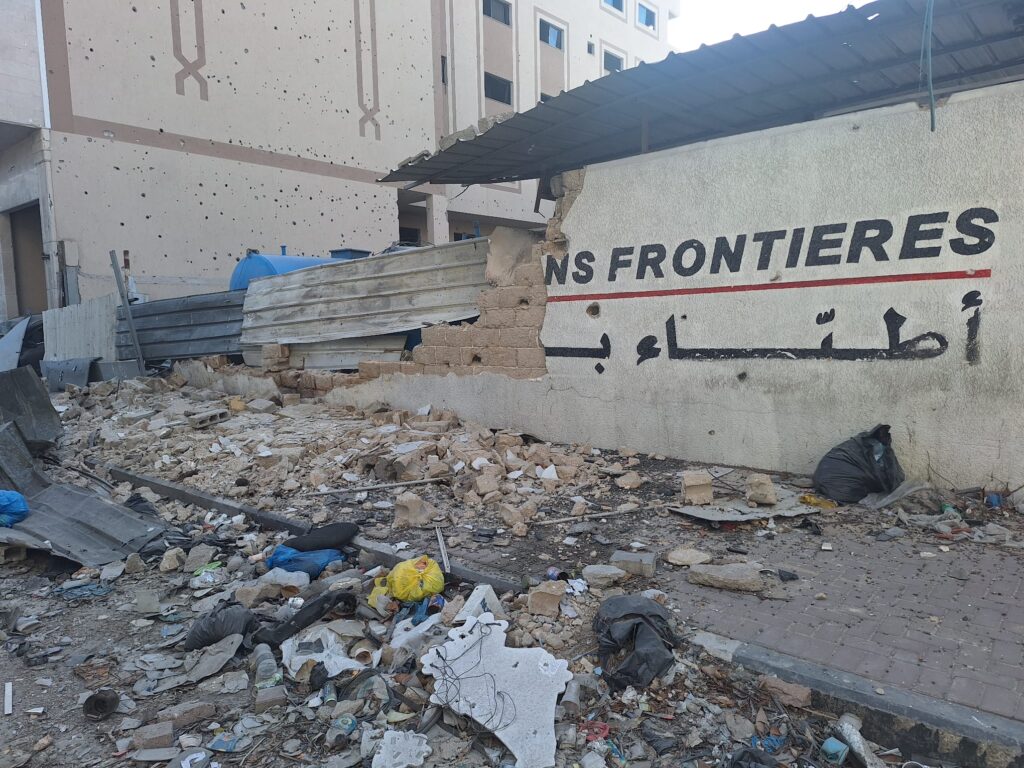
According to Dr Ruth Wells, Senior Research Fellow, Trauma and Mental Health Initiative, Psychiatry and Mental Health, UNSW Sydney, it’s the lack of adequate medical services that will cause the biggest impact.
“It’s political will that causes people to be shot or bombed, but the vast majority will die because of unmet health needs when they are removed from their homeland and denied access to the necessities of life. Starvation, infectious diseases, chronic health problems and mental health problems will lead to death and transgenerational trauma,” she told InSight+.
More than 1.9 million people have fled their homes and around half of those are crammed into appalling conditions in the south of Gaza. They live in temporary structures made of wood and plastic sheeting.
“The flimsy shelters are now constantly struggling, battered by the strong winds and heavy rain, all compounded by the coming of winter. Many people sleep in the streets or in the open areas. They struggle to find enough water to meet their hygiene needs,” an MSF spokesperson said.
Infectious diseases, including diarrhoea, acute respiratory infections, skin infections, and hepatitis, are increasingly being reported in Gaza.
A emergency medical team at the Gaza European Hospital comprising of the Medical Aid for Palestinians, the International Rescue Committee and the Palestine Children’s Relief Fund reported that many patients are dying of infections, with evidence of malnutrition.
The surgeons report completing complex vascular and orthopaedic surgeries; however, some patients later die due to infections and a lack of post-operative care.
Orthopaedic surgeon Dr Husam Basheer said hospitals were: “managing with the bare minimum of resources. One day we wanted to do a plate and screw, which is a standard procedure for bone fixation, but we didn’t have the right equipment. Sometimes we’ve also lacked gauze which is a basic supply for surgery. We worked around the challenges we faced and managed in a different way, but the staff here are overwhelmed.”
Ms Wong’s work involved similar challenges including finding places for women to go after giving birth.
“Thousands of women are being forced to deliver without medical care. For those who can visit hospital, often they are forced to give up their bed a few hours after giving birth, even after a caesarean [delivery].
“MSF have established a post-birth shelter adjacent to Emirati Hospital in Rafah. Emirati is one of the last remaining maternity hospitals in the Gaza Strip so the demand for care far exceeds capacity.
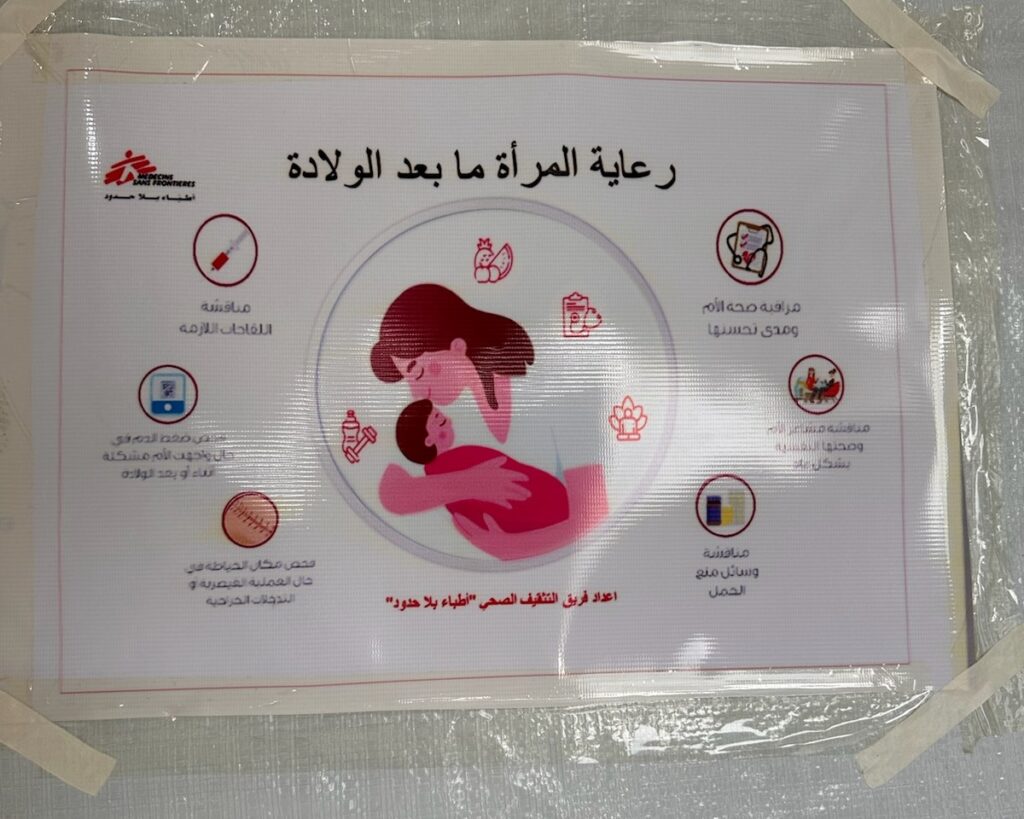
“MSF are providing post-partum medical and mental health support so that women can receive critical post-birth care and strengthen mother–child attachment, including establishing breastfeeding. We have seen that grief and fear combined with lack of access to food has had a significant impact on mothers’ milk supply, but the alternative — formula and clean water — is virtually non-existent.
“Our mental health team support new mums to mentally and emotionally prepare for taking their newborn to a crowded makeshift plastic shelter, under nightly bombardment, with minimal electricity, sanitation or food and, most distressingly, often alone and without loved ones to support them,” Ms Wong told InSight+.
The medical community response
According to Dr Wells, Australian health professionals should demand unfettered access for humanitarian assistance and medical aid in Gaza.
“Health professionals have an ethical responsibility to come together to call for a stop to the systematic destruction of hospitals and health services and the bombing of civilians and aid workers,” she said.
UNSW Sydney is hosting a hybrid seminar in late April to share learnings on how to support health systems in settings that are under siege and bombardment.
An Australia petition, started by paediatric registrars Dr Safiyyah Abbas and Dr Ella Tracey, calling for an immediate humanitarian ceasefire continues to grow, with over 43 000 signatures.
The World Medical Association along with the Australian Medical Association is calling for a humanitarian pause in the conflict.
“Safe access to healthcare services should be re-established and provided for all in need. This includes implementing public health measures and comprehensive disease surveillance and response. Physicians and other healthcare professionals must be provided with a safe working environment and should not be placed in the middle of military operations,” stated Dr Lujain Alqodmani, President of the World Medical Association, in a statement.
In his remarks to the Security Council, United Nations Secretary-General António Guterres urged Israel to show restraint, particularly with new threats from Iran.
“It’s time to step back from the brink.
“It is vital to avoid any action that could lead to major military confrontations on multiple fronts in the Middle East.
“Civilians are already bearing the brunt and paying the highest price,” he said.
Subscribe to the free InSight+ weekly newsletter here. It is available to all readers, not just registered medical practitioners.

 more_vert
more_vert